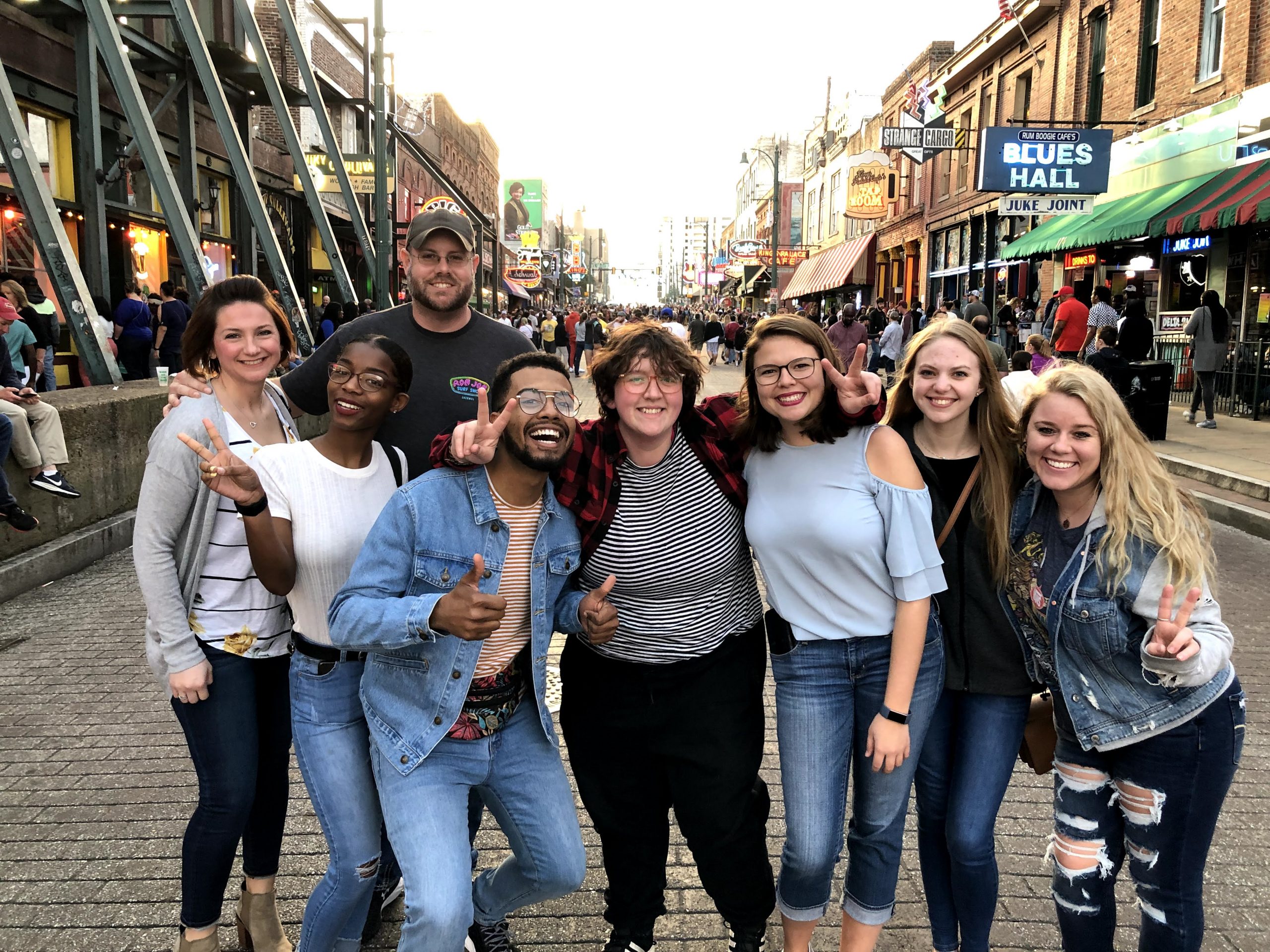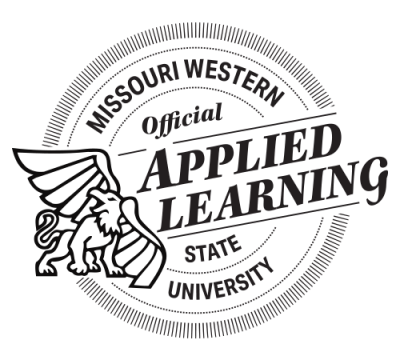Internships
All Missouri Western students who are pursuing a Bachelor of Science degree in Criminal Justice complete the CRJ 465: Internship course as part of the applied learning portion of their degree. The following is important information about this course:
- CRJ 465: Internship is a three (3) credit course offered during the spring, summer and fall semesters.
- CRJ 465: Internship requires the student to engage in a field experience of at least 135 hours.
- CRJ 465: Internship requires students to provide documentation and evaluation of their internship work experience, as well as participation in online discussions, developing a paper and presentation.
Students are expected to find their own internship agency. The following agencies have accepted criminal justice interns in the past. Students may contact the employer to determine if they are accepting interns at this time.
To get started with your internship you will need to register for the CRJ 465: Internship course. You must be enrolled in the class during the semester in which you want to complete your internship hours. You should also contact agencies and organizations that you are interested in interning with. Let their representative know that you are a Missouri Western student and that you are required to complete an internship as part of your undergraduate program. You should then ask if they are accepting interns at this time. If they are accepting interns, then ask what you need to do to be considered for the position. Typically, you will have to provide a resume and a cover letter or you may have to fill out an application. Some agencies require criminal background checks so be sure to contact agencies early.
Students are advised to complete their internship experience where they would like to work after graduation or with an employer who performs similar work. They should think of the internship as a job opportunity. Of course, there is no guarantee of employment for students once the internship is completed. But students need to show each potential employer their best qualities.
All student interns are expected to show up for work on time, never text or take phone calls while working, dress appropriately for the job, and show a positive, energetic attitude while working. Specific job duties will be determined by the agency supervisor.
To decide where you want to work as an intern consider where you would hope to work if you were graduating today. The great thing about the internship experience is that there doesn’t have to be position available. Most agencies accept at least one intern per semester. A list of agencies that have accepted criminal justice and legal studies students as interns is posted on the department website. There are approximately 130 agencies listed. Once students have selected a few employers that they are interested in working for then they should call or email the employer and ask how to apply for an internship with their office. Some employers require students to drop off a cover letter and resume while others want students to come in and fill out an application. Some internships require background checks like the Office of Probation & Parole with the Missouri Department of Corrections. Students need to contact these employers early because security clearances can take several weeks to complete.
Like any other course, CRJ 465: The Internship is assigned to a professor who will supervise all students enrolled in the class. Please refer to the current course schedule to determine who is supervising the Internship course for the current semester.
- Read and understand the course syllabus.
- Complete Form A, which is an informational form, a contract and a release of liability.
- Return the completed Form A to the CJLSSW department by the first week of the semester. Form A must be filled out by the student and the agency supervisor with a description of the duties to be performed by the student. It must be signed by the agency supervisor, scanned, and uploaded in Canvas with the agency supervisor’s signature. Form A is one of the few forms you may also submit in person or by mail to the department.
- The internship placement is not considered approved until the completed Form A has been received and approved by your faculty supervisor for the course. The grade in Canvas for Form A provides proof it is approved by the faculty supervisor.
- Proper dress and demeanor for the agency are required.
- Cooperation between the student and agency is very important.
- Adhere to the confidentiality policies of the agency at all times.
- Student interns are responsible for adhering to the schedule agreed upon with the agency. They should immediately notify the agency if they cannot be there at the scheduled time.
- Students must complete 135 internship hours with the agency.
- Students must submit weekly logs (Form B) in Canvas. Form B must be signed by the agency supervisor.
- Students must complete a mid-semester self-evaluation (Form C) and submit it in Canvas ONLY by the designated due date.
- Students must complete an end-of-semester self-evaluation (Form D), and submit it in Canvas ONLY by the designated due date.
- Students must complete student evaluation of experiences (Form E) and submit it in Canvas ONLY by the designated due date.
- Students must complete all assignments for the agency.
- Students must participate in regular on-line discussions as assigned by the professor. Failure to do so will result in loss of points and may result in additional grade reduction for the final grade at the end of the semester because of lack of participation.
- Students must complete a paper proposal (Form F) The paper must be on a topic dealing with one aspect of your internship agency, to be approved by the professor (Form F) to be turned in through Canvas ONLY. The paper needs to be a minimum of 2000 words. There must be a minimum of 5 scholarly sources. A scholarly source is generally one that is written by a scholar instead of a journalist, in a publication for other scholars, with a bibliography and footnotes or endnotes, and little to no advertising. A Google search will not usually pull up a scholarly source. A web page is NOT a scholarly source. Agency policies and procedures are not scholarly sources. Databases are not scholarly sources. While these sources may prove useful to you, you must have at least 5 scholarly sources cited in your paper. To find a scholarly source, use the library databases and limit your searches for scholarly articles to look for appropriate articles. Some databases will work better than others. For example, in Ebscohost Academic Search Elite there is a box you can check to ask it to retrieve scholarly sources.
Primary legal authority (e.g. court opinions and statutes) may not be used for one of the academic sources. You may need to cite it and use it as a source, but you will still need 5 scholarly sources. Law reviews and most academic journal articles count as scholarly sources. Law reviews can be found in Lexis-Nexis and Westlaw, both of which are available on the MWSU library home page. The proposal must also include a title page and works cited page in APA style. All work of an author must be cited, even if paraphrased in your own words. All citations must be done in APA style (handout available at the MWSU Center for Academic Support).
All work must be original, not previously submitted to another class (a violation of academic honesty policy).
- PLEASE NOTE: If students are dismissed or fired from their internship agency for failure to fulfill the requirements set out by their supervisor, it may result in a failing grade for this course. If you are having any problems during the internship, please contact your professor immediately!
Career Opportunities
Our Criminal Justice & Legal Studies degrees open doors to careers in various fields such as law, law enforcement, investigation, public safety, corrections, social services, and research. Many graduates choose to further their education by attending graduate school in preparation for academia, research, and other professional careers.
Career opportunities in criminal justice & legal studies include:
- Attorney
- Caseworker
- Conservation Officer
- Corrections Officer
- Crime Lab Analyst
- Crime Scene Investigator
- Detective
- FBI Agent
- Homeland Security
- Juvenile Officer
- Law Enforcement Officer
- Lawyer
- Legal Assistant
- Paralegal
- Private Investigator
- Private Security
- Probation & Parole Officer
- Victim Advocate
Student Organizations

The Legal Studies Association is for those students who enjoy discussing the law, participating in related philanthropic activities and networking within the legal field. We strive to promote interest in the law for the students of Missouri Western and the St. Joseph community. We promote civic engagement and empower students with information and experiences within the legal and criminal justice system.
Student American Corrections Association (SACA)
The Student American Corrections Association is for those students who are interested in learning more about local, state and federal correctional facilities OR probation and parole. SACA tours juvenile and adult correctional facilities in the four-state region, as well as hosts speakers to our campus.
Study Away
This Study Away course,
offers you an invaluable opportunity to explore the fields of criminal justice and legal studies. Missouri Western wants students to experience the creation and execution of the law in an up-close and personal way. The content of this course varies but includes an applied learning experience involving travel within the United States or internationally. Some places students have traveled to include Washington D.C, Memphis, Australia, Hong Kong, Spain, Vietnam, Myanmar, India, and Portugal.


